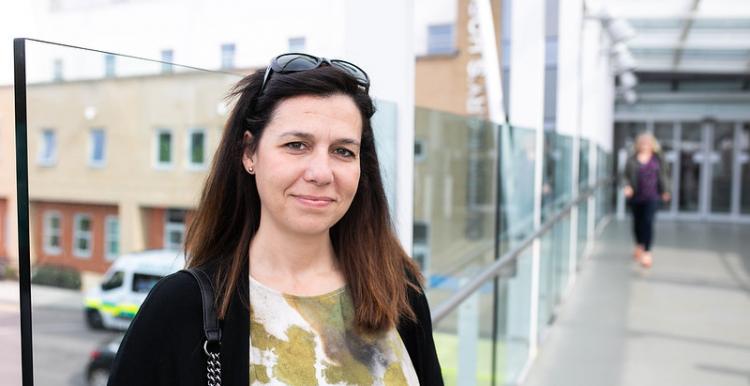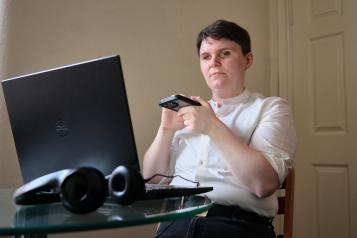Laura champions campaign to improve information for disabled people

By law, all publicly-funded health and social care providers must fully comply with the standard – but not all are delivering on it.
That’s why Healthwatch is calling for changes to make sure local services understand the Accessible Information Standard (AIS) and meet it.
And Cambridgeshire biologist Laura is supporting our campaign.
Help for autistic people
Laura hopes the recommendations will bring better support for people like her. She’s autistic and struggles with things like:
- Waiting
- Phone anxiety
- Last minute changes
- Lack of information
- Deadlines not being met
Autism is a lifelong developmental disability which affects how people communicate socially and interact with the world.
Contact with services
The Standard says if you have a disability, impairment or sensory loss, you should expect to contact and be contacted by services in ways you find accessible.
Laura told us,
“I’ve had calls from the hospital in the past where they call from a withheld number and never leave a voice message and I get very anxious about things left 'hanging'.
“I work in a laboratory so often I don’t have access to my phone during the day.
“I get anxious if I can’t dial the people I need to talk to direct. Sometimes you have to go through a call centre first or you have to leave a message and you’ve not had time to prepare and plan what to say.”
Laura’s preferred way to communicate is through letters or email because it reduces her anxiety around talking on the phone and she can be thorough in the information she sends.
It’s also gives her a written record that she can check when she needs to. And helps avoid misunderstandings from verbal communication.
She likes being able to make GP appointments online. However, she struggles with telephone appointments with just a morning or afternoon window.
“When I could actually do with speaking to someone, usually it's because my pain / mental health is poor, so I am already experiencing reduced capacity to cope with things. And the possibility of a call in such a wide time window, with no appointment time is just too much for me to manage.”
Share your experiences
Are you getting the information and support you need about your health and care?
We want to find out how well health and care services across Cambridgeshire and Peterborough are delivering on the standard.
The survey is available in different formats including Easy Read and British Sign Language.
Call for new accessibility champions
One of the recommendations to make the AIS work better for people is the appointment of an accessibility champion at every health and care service.
The hospital Laura attended did have an autism and learning disabilities champion. But while the support was good, Laura was disappointed that getting connected to one another took too long.
Laura told us this only happened after multiple contacts with PALS and the hospital accessibility service – despite being open about her autism from her first appointment.
“It should be easier for people to find these champions,” she says.
“At the moment, they’re all under different job titles. Information about them should be on hospital websites so that you can get in touch before your visit or to make sure they know and flag the best way for you to get information and correspondence.”
Laura says the lack of process around getting support at the hospital has been one of the biggest frustrations - and the slow response to her concerns and requests for reasonable adjustments has been exhausting to deal with.
“I have felt quite alone and overwhelmed by it all at times as it has reached my limit of how much I can keep trying to advocate for myself.”
Read more about your rights under the Accessible Information Standard.


